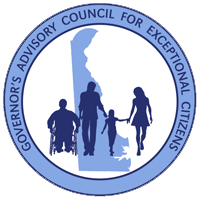Skip to Content
Skip to Navigation

16 to 17 Year Olds
Education
- Student should attend all IEP meetings and could be leading them.
- IEP should address all areas where skills are needed for independence.
- IEP emphasis should be on post-education goals and skills.
- Get agency representatives that are likely to pay for adult transition services to attend IEP meetings.
- Research college options and services offered for people with disabilities.
- Document steps taken to ensure students preferences, strengths and interests are considered even if they are not at the IEP meeting.
- Parents should get all annual IDEA notices from the school.
Employment
- A first job gives individuals experience and skills.
- Meet with DVR to help your teen find a job.
- Pay attention to the rights of people with disabilities in the workforce.
- Establish transportation necessary to get to work.
Eligibility Funding
- Medicaid — Youth should carry and use insurance card.
- SSI — Supplemental Security Income - Plan ahead if SSI is an option. Check for eligibility the month before the person turns 18.
- CHIP — Children's Health Insurance Program State Insurance for Children for families with children under the age of 19 that don't qualify for Medicaid.
- Begin exploring adult options for healthcare coverage if current coverage will end and teach teen how it will work (Deductibles/co-pays/referrals).
Health
- Discuss transition of care with your primary care physician.
- Reinforce healthy choices and how they affect your teens medical condition.
- Discuss what your teen needs to function independently in terms of therapy, equipment, and technology.
- Encourage proper nutrition and exercise.
- Teach young adult how to make medical appointments and fill prescriptions.
- Keep a medical health record file that includes all paperwork.
- Allow youth to spend time alone with doctor during office visits.
- Schedule and have youth attend annual wellness visits with primary care physician (PCP).
- Locate an adult provider and finalize adult health care coverage.
- Transfer medical records to adult provider.
Parent/Caregiver and Young Person Interaction
- Participate and encourage your child's participation in the IEP or 504 process.
- Help young person participate in their IEP. A practice session might help.
- Help young person to monitor progress on his/her IEP.
- If you haven't already, open a joint bank account in your young adult's name.
- Help your young adult apply for a driver's license.
- Develop a long-term plan and make sure your child has employment, community and independent living skills they need.
- Find adult or teen role models for your child.
- Assess your teen's perception and basic knowledge of his/her special needs. Build on understanding. Encourage them to ask questions at doctors' visits.
- Continue teaching self-care skills; include those related to his/her condition. Encourage all attempts, reward successes. Expect positive outcomes.
- Continue teaching self-advocacy skills, especially with healthcare providers and teachers.
- Discuss age of majority and the rights that will transfer to your child when they turn 18.
- Begin helping your teen keep his/her medical summary.
- Discuss relationships and sexuality with your teen and how his/her medical condition may /or may not affect this.
- Help your teen identify and build on his/her strengths and personality traits to build self- esteem.
- Explore your teen's thoughts, hopes and dreams for his/her young adult life.
- Continue to have your teen help with family chores.
- Continue to encourage hobbies, and leisure activities, emphasizing positive lifestyle choices.
- Parents be a role model for your teen to advocate for what they need, plan ahead, be persistent, in accessing resources and services.
- If guardianship is necessary, investigate options for your child's legal protection at least two months before they turn 18.
- If necessary get a power of attorney, health care proxy or conservatorship.
- Register to vote at age 18.
- Men should register for Selective Service.
- Explore alternative living arrangements.
- Teach young adults about nutrition and proper exercise.
- Discuss disability rights with young adults and what that means in the workplace.
- Consider how youth will make BIG decisions when they turn 18 and arrange for assistance if necessary.
- Research supported decision making to determine if this may be an option for your young adult.
- Help young person continue to develop and use self-determination and self-advocacy skills.
Services
- Begin researching/discussing any possible supports/services that may be needed from outside agencies and how funding sources can benefit your student (SSI, Medicaid, DVR, Division of Developmental Disabilities Services (DDDS), etc.)
- Identify and apply for services provided by adult agencies.
- Initiate eligibility process for adult services in state.
- Be persistent when accessing services.
- Complete DDDS application, if applicable.
- Apply for Section 8 housing if desired.
- Check into services offered at potential colleges.
- Establish connection with DART or public transportation.
Supports
- Explore support groups for teens, as interested.
- Talk with other parents of teens, with and without special needs.
- Stay connected to partners, friends, family, faith-based and community.
- Let professionals know when you need help. Accept help when offered.









